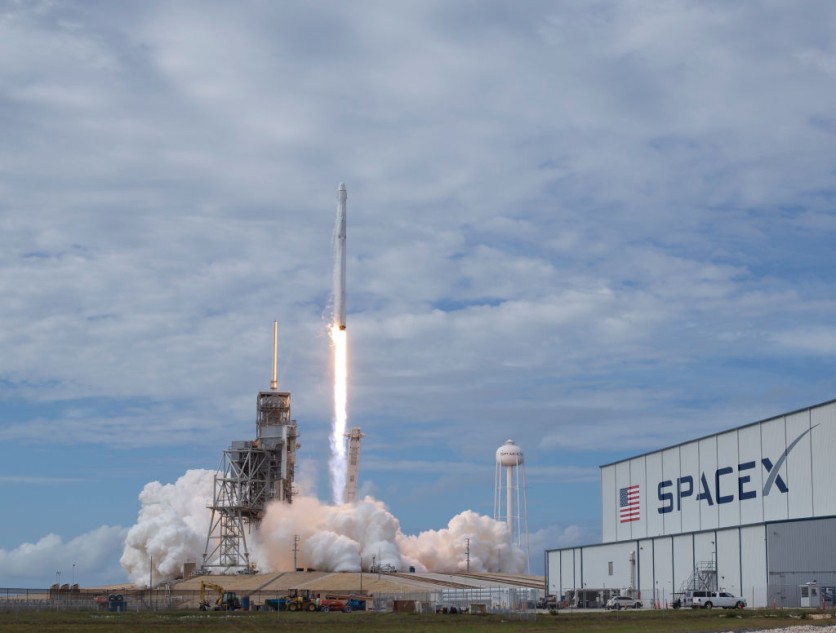Amazon has revealed plans to collaborate with one of its major competitors in the space industry to transport its Project Kuiper internet satellites into orbit.

Amazon & SpaceX Collaboration
Amazon disclosed its intention to utilize SpaceX's Falcon 9 rocket for a series of three launches starting in 2025. Project Kuiper, Amazon's initiative for low Earth orbit satellites, aims to provide global internet connectivity in the future.
The Verge reported that Amazon's decision to collaborate with SpaceX comes as a surprise, considering the competition between the two companies in the satellite broadband market.
Amazon's Kuiper system is positioned to rival Elon Musk's Starlink, with both projects representing multibillion-dollar initiatives aiming to establish extensive satellite networks serving a diverse clientele, from individual consumers to governmental entities.
This partnership with SpaceX reflects Amazon's evolving strategy as it strives to expedite the deployment of Kuiper to meet regulatory deadlines. Federal Communications Commission regulations mandate that Amazon have half of its proposed 3,236 satellites in orbit by July 2026.
Notably, Amazon had previously made a substantial order for launches from three of SpaceX's primary rocket competitors, including Jeff Bezos' Blue Origin.
This decision drew attention and was subject to a shareholder lawsuit against Amazon earlier this year, alleging that Bezos' rivalry with fellow billionaire Musk influenced the exclusion of SpaceX from the deal.
It's worth highlighting that although Bezos founded both Amazon and Blue Origin, these entities operate independently of each other.
Facing Challenges
In October, Amazon successfully launched its initial two test satellites for Project Kuiper, demonstrating internet connectivity and facilitating a two-way video call.
Despite these achievements, CNBC reported that Amazon faces the challenge of catching up to SpaceX's Starlink, which has already deployed approximately 5,000 satellites.
Amazon has secured more than 77 launch orders from a roster of providers including Blue Origin, United Launch Alliance, Arianespace, and ABL.
However, challenges in the progress of these rocket developments have prompted Amazon to alter its launch plans in the past. To expedite development, the company made two adjustments to the choice of rocket for its initial pair of Kuiper prototypes before the successful mission launch in October.
Also Read : SpaceX to Launch Rival Kuiper Internet Satellites? Amazon VP Complements Company's Track Record
Announcing the successful completion of testing for the Kuiper prototypes last month, the Wall Street Journal reported that Amazon is now focused on initiating the production of commercial satellites slated for launch in the coming year.
The financial commitment to build Kuiper is substantial, with Amazon anticipating an investment exceeding $10 billion. Earlier in the year, the company initiated the construction of a $120 million pre-launch processing facility in Florida.
Read also: Jeff Bezos vs Elon Musk: Amazon Shareholder Snubs SpaceX as Alleged Personal Rivalry Continues

ⓒ 2025 TECHTIMES.com All rights reserved. Do not reproduce without permission.




